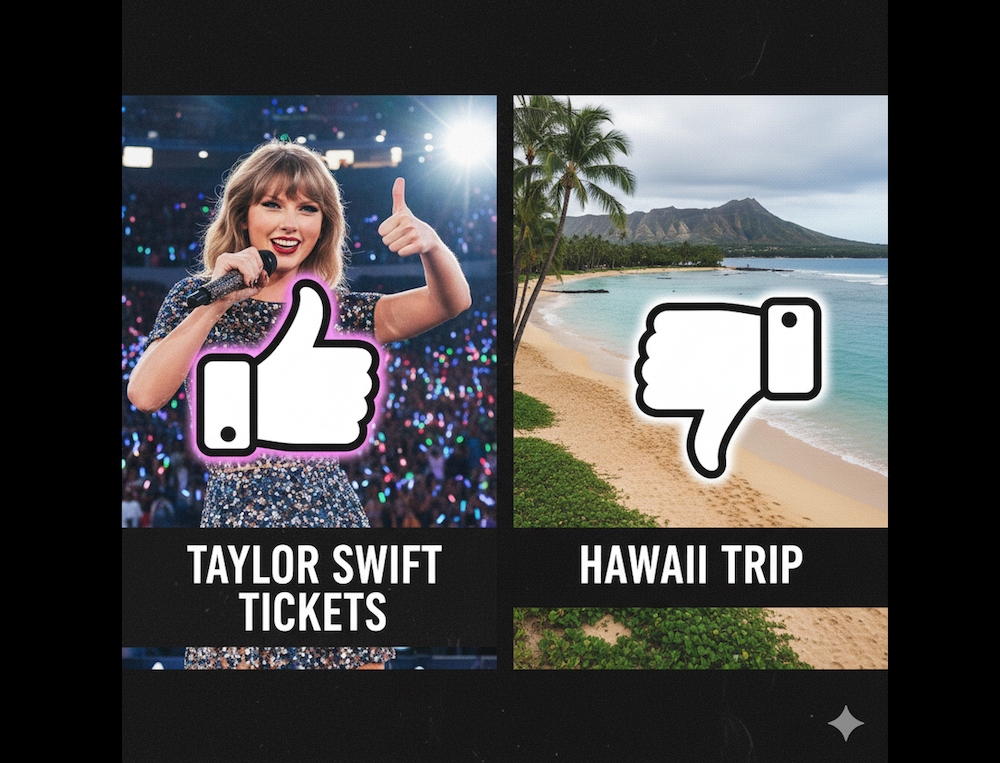The 2025 Incentive Travel Index reveals that many of today’s qualifiers want experiences that hit the right note, not just the right resort
When 39 percent of incentive-travel professionals say younger qualifiers would rather see Taylor Swift than Hawaii, it’s tempting to laugh it off as a punchline. But buried in that stat is the sound of an industry in transition.
According to the 2025 Incentive Travel Index (ITI)—the global benchmark study from the Incentive Research Foundation (IRF), SITE Foundation, and Oxford Economics—reward travel is no longer about luxury for luxury’s sake. It’s about alignment, authenticity, and emotion. The next generation doesn’t just want to be wowed; they want to be understood.
More than half of respondents (56 percent) say younger qualifiers will refuse a trip if the destination doesn’t align with their personal values. Meanwhile, 41 percent believe Gen Z sees incentive travel more as an entitlement than a reward—a warning to any program designer still counting on a five-star resort to do the heavy lifting.
Incentive travel itself is thriving—the global per-person spend hit $5,100 in 2025, up 4 percent year-over-year—but its purpose is changing. The magic isn’t in the mai tais anymore; it’s in the meaning.
AI Joins the Planning Committee
If the generational shift is rewriting what motivates travelers, technology is rewriting how planners deliver it. The ITI finds that 93 percent of incentive professionals now use ChatGPT, and the AI revolution is already in full swing across the industry.
Other heavy hitters include Microsoft Copilot (74 percent), Canva Magic Studio (66 percent), and Google Gemini (46 percent)—proof that artificial intelligence has officially gone mainstream in meetings and incentives.
What’s it being used for? Practically everything short of mixing the welcome-reception cocktails:
61 percent use AI for content creation—from invites to post-event recaps.
51 percent use it for destination research and planning.
35 percent deploy AI for program design and scenario modeling.
32 percent use it for participant communications, including chatbots and automated updates.
In short, AI is the planner’s new plus-one—an endlessly efficient assistant that handles the grunt work so humans can focus on crafting experiences that feel, well, human.
Purpose Over Perks
If millennials sought adventure and boomers chased luxury, Gen Z is chasing alignment. They care less about where they go and more about what the trip means. A resort may look great on Instagram, but if the company sponsoring it has a shaky reputation on social issues or sustainability, that post won’t make the feed.
The ITI calls it a move toward “purpose-driven travel,” where destinations and programs are curated to reflect shared values rather than just status. Think volunteer experiences, regenerative destinations, and surprise-and-delight moments that double as social currency.
It’s not that beaches and champagne have lost their appeal—just that they’re no longer enough. The next generation of qualifiers wants connection with local communities, not just cocktails with coworkers.
The Incentive Remix
For incentive organizers, this moment demands both data fluency and emotional intelligence. AI can tell you when to book, what to budget, and how to optimize airlift—but it can’t tell you why someone chooses a Taylor Swift concert over a Hawaiian sunset.
The next era of incentive travel will belong to planners who can read both the algorithm and the audience—who use tech to personalize the logistics but keep the experiences rooted in empathy, purpose, and play.
As the ITI puts it, “the value of incentive travel is as strong as ever, but the business of incentive travel gets tougher every year.” The future, in other words, isn’t about going bigger. It’s about getting closer—to people, to meaning, and yes, maybe to the front row of a sold-out stadium.
Because for the next generation of qualifiers, loyalty isn’t earned with upgrades. It’s earned with understanding.
Any thoughts, opinions, or news? Please share them with me at vince@meetingsevents.com.
Photo by Gemini





